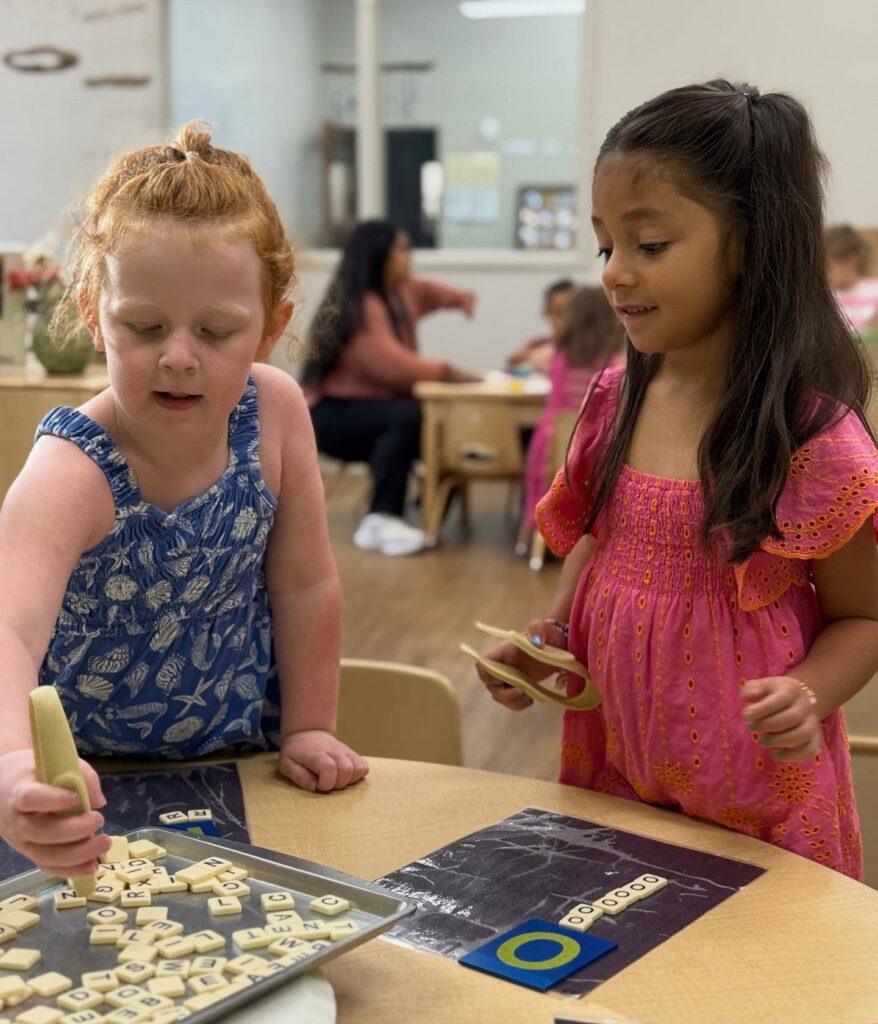Building Resilience: How Challenges Help Preschoolers
This article comes from Erin McGill, owner of our Woodstock campus.
As parents and educators, we’ve all witnessed the emotional rollercoaster of a preschooler faced with a challenge—whether it’s a puzzle that won’t come together or a block tower that keeps tumbling down. The frustration can boil over into tears.
It’s tempting to rush in, offer a solution, or fix the problem for them. But what if we told you that letting your child struggle—in a productive way—is one of the best things you can do for their development?
What Is Productive Struggle?
Productive struggle is the process of working through a challenging task without immediate success. It may involve confusion, trial and error, or even frustration, but ultimately leads to understanding or resolution.
Rather than viewing struggle as something to avoid, research shows that it plays a crucial role in developing important life skills like perseverance, resilience, critical thinking, and independence.
When children are allowed to wrestle with a problem—without being handed the answer—they learn that difficulty isn’t something to fear, but a challenge that can be overcome.
A supportive preschool environment that incorporates age-appropriate challenges helps children adapt to change.
Why It Matters
Children who regularly engage in productive struggle:
- Develop problem-solving and critical-thinking skills
- Learn the value of perseverance
- Build emotional resilience and self-confidence
- Become independent learners who take ownership of their learning journey
- Are better prepared for more complex academic challenges in the future
These are the foundational skills that will serve them for life—not just in school, but in friendships, work, and beyond.
Recognizing Opportunities for Problem Solving at Home
As a parent of a preschooler, you don’t need to create elaborate scenarios for problem-solving; the best opportunities are often embedded in everyday moments.
When a tower tumbles, a shoe is put on the wrong foot, or two children want the same toy, these moments are not simply interruptions—they’re powerful learning episodes. Recognize these natural frustrations and conflicts as invitations for your child to think, reason, and develop solutions.
Instead of fixing the issue, pause and ask open-ended questions like, “What can you do now?” or “How could we make this work?”
At Ivybrook Academy, our approach to early childhood education is a collaborative partnership with families. Our half-day model is intentionally designed to bridge the school and home environments, ensuring learning doesn’t stop when the child walks out the door.
The Goal: A Safe Space to Struggle
Creating a supportive environment—where it’s safe to fail, try again, and ultimately succeed—is key. The goal isn’t perfection, it’s growth. When your preschooler learns that it’s okay to struggle, they also learn that they’re capable of overcoming.
Why a Strong Preschool Foundation Shapes a Lifelong Love of Learning →
Supporting Lifelong Resiliency
At Ivybrook Academy, we embrace the philosophy that real learning happens in the moments of challenge. We understand that difficulties are not something to be feared or avoided—but rather embraced as a vital part of the learning journey.
Our Reggio Emilia and Montessori inspired curriculum creates a personalized learning experience that nurtures the whole child—academically, socially, and emotionally. In allowing children to understand and overcome obstacles, we empower our students to become confident thinkers, creative problem-solvers, and resilient individuals.
